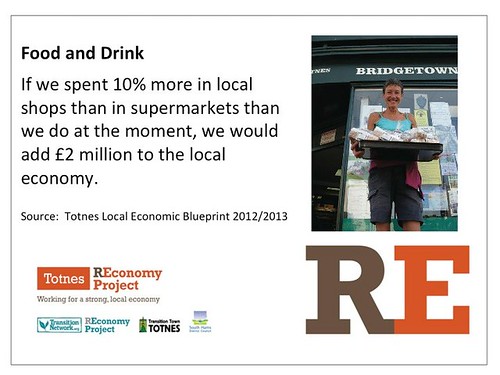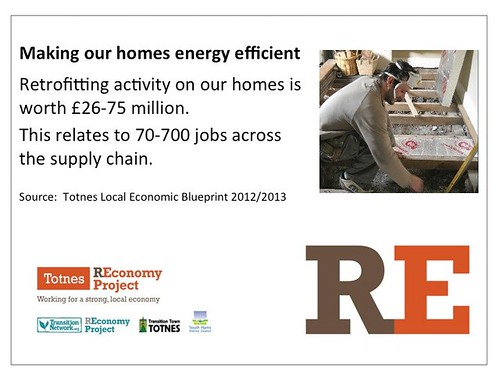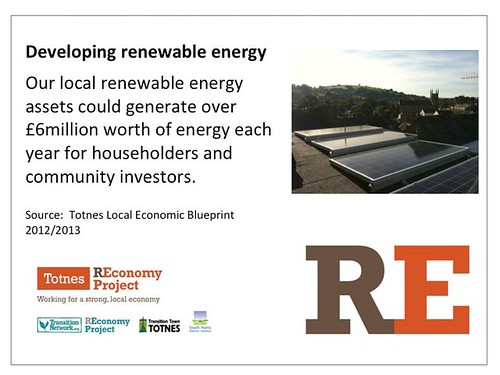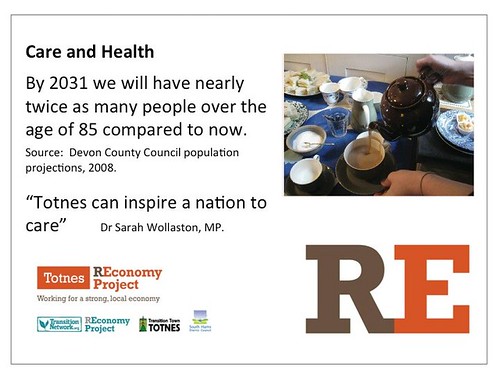A "local economic blueprint" for Totnes could inspire other places to maximise their renewable assets
Much inspiration to be had from Totnes over the years - birthplace of Transition Towns, for example. Like many, their council has declared a climate emergency - but unlike many, they have a deep history of planning which will allow them to speedily act on this.
See this tweet (left) from the area’s Reconomy Centre, noting how the local council is drafting a retrofitting plan for energy efficient homes in the area.
Ready and waiting to be executed is Reconomy’s “local economic blueprint” for their area, focussing on how work and wealth can improve in quality and in quantity. From the introduction of the report (PDF), they state their principles:
We agreed the overall goal of this system would be to maximise the wellbeing of our entire community, and to do this in a way that uses and distributes resources fairly while respecting natural limits. Economic growth is welcome, certainly within the sectors identified within this project, but not at any cost.
What improves our wellbeing? One way of looking at this is using a set of human needs that are common to all of us. For example, nef suggests that 5 ways to well-being are to connect, be active, take notice, keep learning and give
If we can design an economic system that provides jobs and meets as many of these needs as possible, while being ecologically efficient, then we have the opportunity to develop something that actually meets our needs as humans in a sustainable way.
How it’s panned out is captured in these four info panels:




True to the spirit of the moment - a time when innovations get copied and adapted across networks, locally and globally - the Reconomy Centre has produced a book on how to write a local economic blueprint (the PDF guide is here).
Why do an Economic Evaluation?
Engage your local economic leaders and organisations in a new conversation about your local economy.
Develop a deeper understanding of your local economy.
Identify opportunities for new transition-oriented enterprises, cooperatives & social enterprises.
Begin to build networks of existing businesses, by sector.
Support the growth of key resilience-building sectors, such as food, renewable energy, retrofitting.

